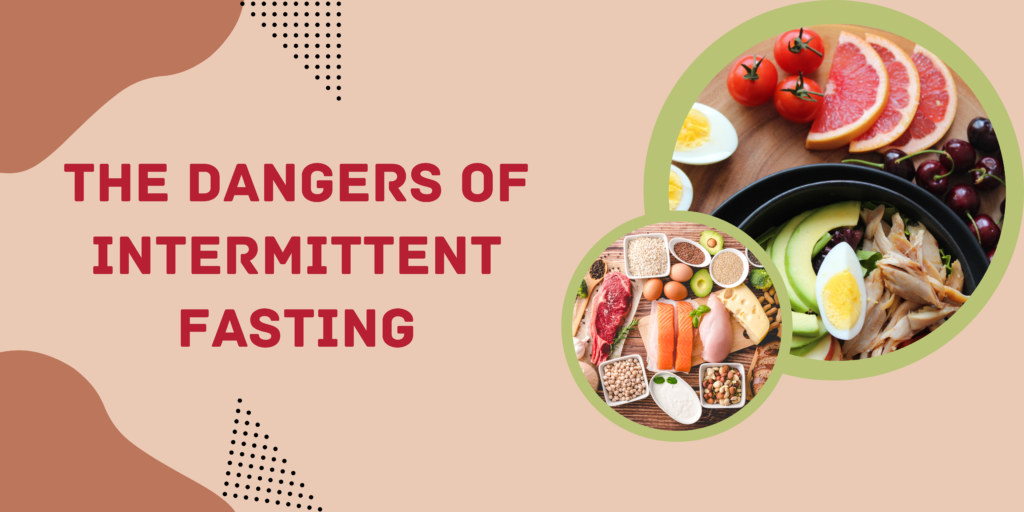The Dangers of Intermittent Fasting
A person who practices intermittent fasting will abstain from eating food for a certain amount of time at regular intervals. There are many different sorts of intermittent fasting diets that are becoming more popular, from a fast that lasts for 12 hours to fasting every other day. Although many medical experts believe intermittent fasting is not inherently harmful, they agree that the practice is not suitable for everyone.
1. If you have a larger caloric demand, you should not engage in intermittent fasting.
An intermittent fasting diet is not recommended for those who are underweight, have trouble gaining weight, are younger than 18, are pregnant or nursing, or are under the age of 18, since these groups of people need enough daily calorie consumption for healthy growth and development.
2. If you are at risk of developing an eating disorder, you should not practice intermittent fasting.
Because of the substantial correlation between intermittent fasting and bulimia nervosa, those who are at risk for developing an eating problem should avoid following any diet that involves fasting. Having a member of one’s family who struggles with an eating disorder, perfectionism, impulsivity, and emotional instability are all characteristics that increase the likelihood of developing an eating disorder.
3. Stay away from the practice of intermittent fasting if you do not wish to experience feelings of hunger, overeating, dehydration, fatigue, or irritability.
When we say that intermittent fasting is not for the faint of heart, we mean that even if you are not underweight, you are over the age of 18, you are not predisposed to an eating disorder, and you are not pregnant or breastfeeding, there is still a good chance that you will experience some undesirable side effects from doing it. This is because intermittent fasting is not for the faint of heart.
What to Anticipate When Engaging in Intermittent Fasting
A possible side effect of fasting is a rise in the levels of the stress hormone cortisol, which may result in an even greater desire to eat.
Both overeating and binge eating are frequent negative side effects associated with the practice of intermittent fasting.
Because when you do not eat, you sometimes forget to drink, intermittent fasting is sometimes related to dehydration. This is because intermittent fasting is sometimes connected with dehydration. It is necessary for excellent health to actively keep hydrated throughout the day by consuming, on average, three liters of water to maintain proper hydration levels.
Because your body will be operate less energy than usual, you will most likely feel weary. Additionally, because fasting may cause stress levels to rise, it can also create disruptions in your normal sleep patterns. It is essential to establish a sound, consistent routine for sleeping and adhere to it if you want to be able to wake up feeling refreshed daily.
The biochemistry that controls mood is also the biochemistry that controls hunger. The activity of neurotransmitters like dopamine and serotonin is affected by the nutrients that are consumed. Anxiety and sadness may be caused or exacerbated by fasting.
While you de-regulate your hunger, it has the potential to have a similar effect on your mood, and as a result, you may probably experience irritability on occasion when you are fasting.

